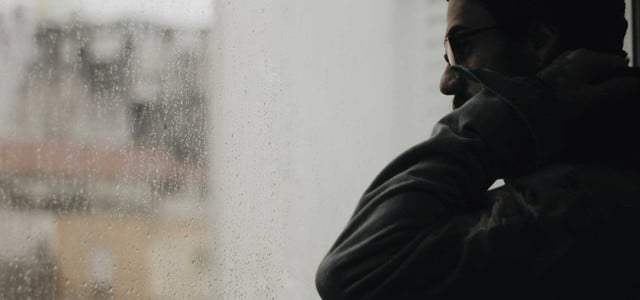
Broken traffic lights, US elections, conflicts and catastrophes: That can be quite depressing. How to keep your head up in the face of such events and deal with world pain properly.
“I’m in such a bad mood, what else is going to happen?” – that’s the feeling that colleagues have in the coffee kitchen, parents at daycare pick-up – and you somehow too? The feeling has a name: world pain. The term was invented by a German over 250 years ago, and it fits so well that it is also used in English. But what exactly is it – and what can you do about it?
What exactly is world pain?
World pain is a feeling of melancholy, depression and powerlessness in the face of the perceived inadequacies of the world and human existence. It depresses our mood when we experience that the world does not work as it should – at least according to our ideals and ideas.
“World-weariness occurs when we become aware that the world, other people, and even ourselves often do not live up to the expectations we have of them,” writes therapist Michele DeMarco in Psychology Today. But the questions about why must be answered somehow.
World situation precarious: what can we do?
What can people do if they feel paralyzed or even afraid by the news and the world situation? And at the same time want to stay informed? There are three things, says Dorothee Salchow, trainer at the German Society for Positive Psychology.
- First: “According to everything we know from research, we should not withdraw, but rather talk about our powerlessness and fear. This actually reduces anxiety and creates community, which we desperately need when we feel powerless.”
- Secondly, “we should only consume news specifically, at a specific time of the day that we choose – and definitely not all the time and not in the morning. This makes it possible to stay informed without putting too much psychological strain on ourselves.”
- The third point is particularly important, says Salchow, “and I was just discussing it with a friend in light of the US elections. She said that in her ‘bubble’ she can make good use of her strengths such as bonding and humor, but she fears that these will be lost in the bigger picture and it won’t make a difference.
But: “It makes a difference! For ourselves and for others, when we try to help in small or large ways and reflect on our human strengths. “This increases self-efficacy, increases our own resilience and shows that we can make a small contribution even in unbelievable situations,” says the trainer. And then we should view these experiences as small victories, advises DeMarco.
In general, it helps to consciously look at what is good in our lives: “We see the negative things by ourselves – and we have to talk about them too. “We have to actively look for the positive and the beautiful moments that every single day offers,” says Dorothee Salchow.
Many experts recommend gratitude diaries: “They give our brain the task of looking for what is already good in our lives and thus contribute to cognitive restructuring.”
Weltschrei: What specifically helps against the symptoms of stress?
Crises often increase the feeling of powerlessness and loss of control. According to Michele DeMarco, this has a particularly strong effect on our nervous system and leads to stress reactions: we feel tense, have trouble sleeping and are constantly on the lookout for threats. This puts a strain on us emotionally and physically. And that’s where you can start:
“Especially from neuroscience there is a lot of evidence that it is important to use our bodies much more than we do today,” says Dorothee Salchow. “When there is stress and tension, hormone cocktails are released that were previously released through fleeing, i.e. running fast, or fighting, for example against a wild animal. We don’t do that today and our bodies are flooded with stress hormones like adrenaline and then cortisol without us being able to break them down. Physical exercise helps!”
What if I feel frozen?
This is the “freeze” reaction, which also exists alongside fight and flight. You can use your body there too: Michele DeMarco recommends “astronaut running”, where you consciously walk slowly and firmly, or exaggeratedly chewing something crunchy or chewing gum (“as if you were showing a child”) – anything What stimulates our senses helps us get out of a lethargic, stuck state.
By the way: world pain also has something good, according to the US psychologist. “There is a parallel to physical pain: although it is unpleasant, the inability to feel it is extremely dangerous. World-weariness is painful, but numbness to it is worse.”
Read more on Techzle\.com:
- We should stop talking about climate change
- Podcast: What the climate crisis means for our psyche
- Climate protection: 10 simple tips for everyone
** marked with ** or orange underlined Links to sources of supply are partly partner links: If you buy here, you are actively supporting Techzle\.com, because we then receive a small part of the sales proceeds. More info.